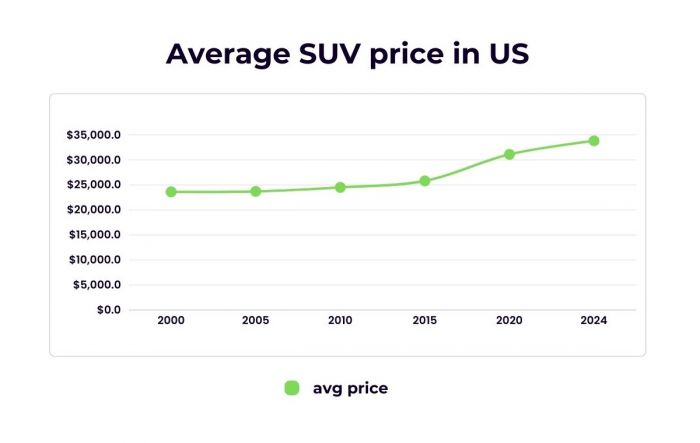If you are into German cars, one of the most obvious options for you is the Audi Q5 SUV with its luxurious interior, comfortable ride, elite look, and reliable equipment. Well, we know that reliable equipment is not exactly about modern cars, but if you compare the Audi with other cars in the same price range, the Q5 will seem quite decent.
Today, we'll tell you about the 2-liter TFSI engine that powers the Audi Q5 40 TFSI trim. We'll see its specs, features, weaknesses, and also maintenance requirements. We'll cover the most interesting things we know about the engine and will see if Q5 owners are actually glad about this seemingly great engine.

Key features and my opinion about the engine
- Production years:2008-now
- Average lifespan of 40 TFSI:150,000-180,000 miles
- Fuel supply type:direct injection
- Power range:190-300 hp
- Fuel efficiency:good
- Engine block material:aluminum
- Engine reliability score:medium
- The most common problems:heavy oil burning, turbocharger problems, issues with the oil and water pumps, timing chain problems.
Basic features of the 2.0 TFSI engine in the new Audi Q5
We should say that the Q5 is one of the most popular SUVs in the class with more than a quarter million sales a year globally. It means the vehicle is well-researched by mechanics and should have a lot of reviews so that you could easily understand if it's good. But this is Audi, a Volkswagen-made car that has so many changes and modifications that you can barely understand what type of engine is inside.
We couldn't come up with a simple answer to this question: what engine code is used in the Audi Q5 in 2023? Apparently, this generation has been in production and sales since 2018 with a restyling in 2021. But during this time, Audi has changed a dozen of engine modifications, all of them having 2 liters of capacity and the same TFSI nature.
Here's what you should know about the one used in 2023:
- the 40 TFSI engine is the base engine for the cheapest trims, it only offers 201 horsepower which is not considered a lot these days;
- also, the torque is 236 lb-ft and this is not a huge torque for an SUV of this size, so don't expect sporty driving;
- the engine comes equipped with only one type of transmission - the dual-clutch 7-speed DSG transmission with certain flaws in it;
- the engine is turbocharged, it has quite a big Volkswagen turbo that requires very thorough maintenance and attention;
- we should say that the engine is really quick, so you won't feel that lack of power in real life in most cases, but the 45 TFSI is preferable if you are used to powerful cars;
- this engine has a chain-driven timing system which may be seen as a good thing, but the chain will need some maintenance;
- with 23 MPG in the city and around 29 MPG on highways, the engine doesn't seem too economical or too expensive to drive - just average according to the gas mileage factor.
This is an inline 4-cylinder 2-liter engine with a turbocharger that has hybrid fuel injection (MPI plus GDI). So, the direct injection offers better gas mileage and more power while the MPI injectors ensure that the valves don't get clogged with carbon buildup. This is a wise thing and it really saves the engine from all kinds of buildups on valves.
But still, you shouldn't think this is the ideal engine with a lot of advantages. Yes, it may seem decent when you look at its specs and only the lack of power may appear to be the problem. But actually, this engine is not the best among its competitors on the market. It has some problems and a few of them will scare you right from the zero mileage. So, let's dig deeper!
What should be the durability of the 40 TFSI engine in the Audi Q5?
When it comes to the durability of modern turbocharged engines, you aren't going to like them. American buyers are used to engines that last forever, but, unfortunately, those times are gone. Now American companies manufacture small-displacement engines with huge turbochargers to somehow fit them into growing ecological demands and requirements. And this kills their durability.
The 2-liter gasoline engine in the Audi Q5 is going to run approximately 150,000 miles. And this is not the mileage when you start getting problems. You actually start noticing problems right when you buy the vehicle. And at 150K miles, this engine becomes bad to own from the money point of view - you will spend thousands to keep it on track.
So, if you are looking to buy a Q5 with 140,000 miles on it, remember that you are buying a corpse car. It's going to vacuum clean all your money and eventually, you will sell it as a damaged vehicle five times cheaper than you bought it.
What are the common problems with the 2.0 TFSI engine in the Q5?
The new Q5 may seem like a very decent SUV to buy until you start researching its common problems. The engine is still one of the most problematic units in the vehicle. And although it's quite new, we already know a lot of possible issues that will happen with the machine.
Please remember that not all of the common problems will show up in your car. This list was compiled after thorough research of specialized forums, talking to mechanics, and also talking to Q5 owners right on the streets.
Here are some of the most common problems you should know about:
1. Oil consumption from the very first day
Unfortunately, this is one of the VW engines that consumes some oil. It may not seem like a big issue, but this will make you check the oil level regularly. The problem is that Volkswagen engines always have this weird low-oil-level light that only flashes when it's too late. So, it should be your rule to check the oil level at least once a month.
If you don't do this, sooner or later the Q5 engine will develop a low oil level and will eventually get wear and tear. It may happen at 5,000 miles or even sooner, so there is no mileage limitation for this. Be careful with such things because they may just kill the engine.
2. Turbocharger failure
Although it usually happens because of the wrong oil or low oil level, sometimes the turbo may surprisingly say goodbye to you at 30-40 thousand miles without any previous signs or warnings. This may sound really weird but the turbo is not reliable at all.
We've seen Q5 SUVs in repair stations with their turbochargers taken off and repaired when they only had 20K miles on them. But we need to say that some owners have driven these engines for over 150,000 miles with no problems with their turbos.
3. Oil pump problems
The oil pump in these engines is smart. It can regulate the flow of the oil in accordance with engine work (RPM, temperature, etc.) But eventually, it may lead to a problem when the pump or some electronics glitch and the engine doesn't get the needed amount of oil to work well. This is a pretty rare problem but it was documented and reported a few times with these engines.
4. Water pump issues
We don't know what was the reason for this brilliant decision but the water pump in these engines is made of plastic. We understand that the engine with a timing chain in it is thought to drive its all life with one single water pump because the chain is said to live as long as the whole engine. But the plastic water pump will never make it to 150,000 miles, that's for sure.
5. Timing chain issues
Unfortunately, at 80,000 or 100,000 miles you will start hearing some rattling from your engine when it works. It will seem that the engine is broken. But a good diagnosis will reveal the problem - the stretched timing chain. The chain should be replaced along with the water pump and the tensioner. Otherwise, it will stretch even more and will eventually kill the engine.
Chain replacement will be needed at 80,000 miles to prevent it from stretching and prolong the lifespan of your engine.
What should you do to drive your 2.0 TFSI Audi Q5 longer?
Well, whatever you do, you will not be able to drive the vehicle longer than 150,000 miles. At this mileage, the engine will die, and repairing or replacing it will cost you a fortune.
But still, following these simple tips, you may reduce the number of problems you will get along the way:
- only use original Audi oil, filters, and other things for regular maintenance;
- buy only OEM parts if you need to repair the engine;
- never allow inexperienced mechanics to get their hands on this engine;
- use high-quality gasoline;
- keep up with all regular maintenance milestones;
- always pay attention to all leaks, strange sounds, and changes in the way the engine works.
We still know that a lot of buyers will choose Audi Q5 with the 2.0 TFSI 201-horsepower engine because it's cool to drive. And we believe this is a good choice. But you should remember the problems we've listed above.
About the authors
The CarAraC research team is composed of seasoned auto mechanics and automotive industry professionals, including individuals with advanced degrees and certifications in their field. Our team members boast prestigious credentials, reflecting their extensive knowledge and skills. These qualifications include: IMI: Institute of the Motor Industry, ASE-Certified Master Automobile Technicians; Coventry University, Graduate of MA in Automotive Journalism; Politecnico di Torino, Italy, MS Automotive Engineering; Ss. Cyril and Methodius University in Skopje, Mechanical University in Skopje; TOC Automotive College; DHA Suffa University, Department of Mechanical Engineering





Add comment